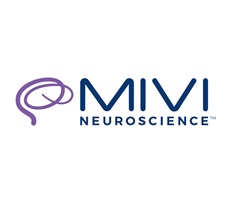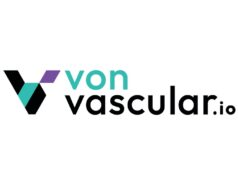 Mivi Neuroscience has announced the primary endpoint results of its EvaQ trial—a prospective, multicentre, global, single-arm, US Food and Drug Administration (FDA)-regulated investigational device exemption (IDE) study to evaluate the safety and effectiveness of the company’s Q revascularisation system for treating acute ischaemic stroke. The data were presented recently at the 2024 International Stroke Conference (ISC; 7–9 February, Phoenix, USA).
Mivi Neuroscience has announced the primary endpoint results of its EvaQ trial—a prospective, multicentre, global, single-arm, US Food and Drug Administration (FDA)-regulated investigational device exemption (IDE) study to evaluate the safety and effectiveness of the company’s Q revascularisation system for treating acute ischaemic stroke. The data were presented recently at the 2024 International Stroke Conference (ISC; 7–9 February, Phoenix, USA).
A total of 17 sites and 123 patients participated in the EvaQ trial across the USA and France, with results showing the Q revascularisation system to be safe and effective for thrombectomy of large vessel occlusion (LVO) strokes.
As stated in a Mivi press release, outcomes for patients with acute ischaemic stroke undergoing mechanical thrombectomy are improved with complete revascularisation and first-pass reperfusion—and the Q revascularisation system is designed to improve aspiration efficacy, compared to similarly sized catheters, by increasing the lumen diameter to maximise flow.
Mivi’s Q technology—comprised of the Q aspiration catheter, the Super 90 guide catheter, the Mivi HFT 110 high flow tubing and compatible vacuum aspiration pump—is a novel neurointerventional revascularisation system designed to offer physicians “meaningful new options” to optimise outcomes for their stroke patients.
The primary effectiveness endpoint for the EvaQ trial was successful revascularisation (modified thrombolysis in cerebral infarction [mTICI] 2b–3) at the end of the procedure, as determined by an independent imaging core lab.
The rate of successful revascularisation was found to be 93.9%, while the first-pass mTICI 2b–3 revascularisation rate was 56.7%.
In addition, the primary safety endpoint was symptomatic intracranial haemorrhage (sICH)—defined as clinical deterioration ≥4 points on the National Institutes of Health stroke scale (NIHSS), or leading to death and identified as being the predominant cause of neurologic deterioration. SICH, adjudicated by an independent clinical events committee, was observed at a rate of 6.5% in the EvaQ trial.
“Mivi Neuroscience would like to thank our global primary investigators, Professor [Christophe] Cognard, Dr [Lucas] Elijovich and Dr [Brian] Jankowitz, as well as all site investigators and research teams that participated in the EvaQ trial in the USA and France,” commented Mivi chief executive officer Bob Colloton. “We are encouraged by the results and the prospect of commercialisation of the Q revascularisation system in the USA following FDA clearance. This is a validating milestone and demonstrates our commitment to advancing technology that could improve the outcomes for acute ischaemic stroke patients worldwide.”
Lucas Elijovich (Semmes Murphey Clinic, Memphis, USA) added: “Mivi has been committed to the next generation of meaningful clinical data with their purposefully designed Q aspiration catheter. We are excited to share these results and continue to build on the portfolio of evidence demonstrating the safety and effectiveness of this device.”
EvaQ trial data have been submitted to the US FDA for clearance of the Q revascularisation system, according to Mivi. The system has also received a CE mark, and has been available in Europe and other international markets for five years; specifically indicated for use only for the removal of fresh, soft emboli and thrombi in the peripheral and neurovascular systems, or applied as a diagnostic angiographic catheter. Mivi notes in its recent release that Q is currently pending US FDA clearance as an acute ischaemic stroke treatment but is already available across the country under a distal access indication.









